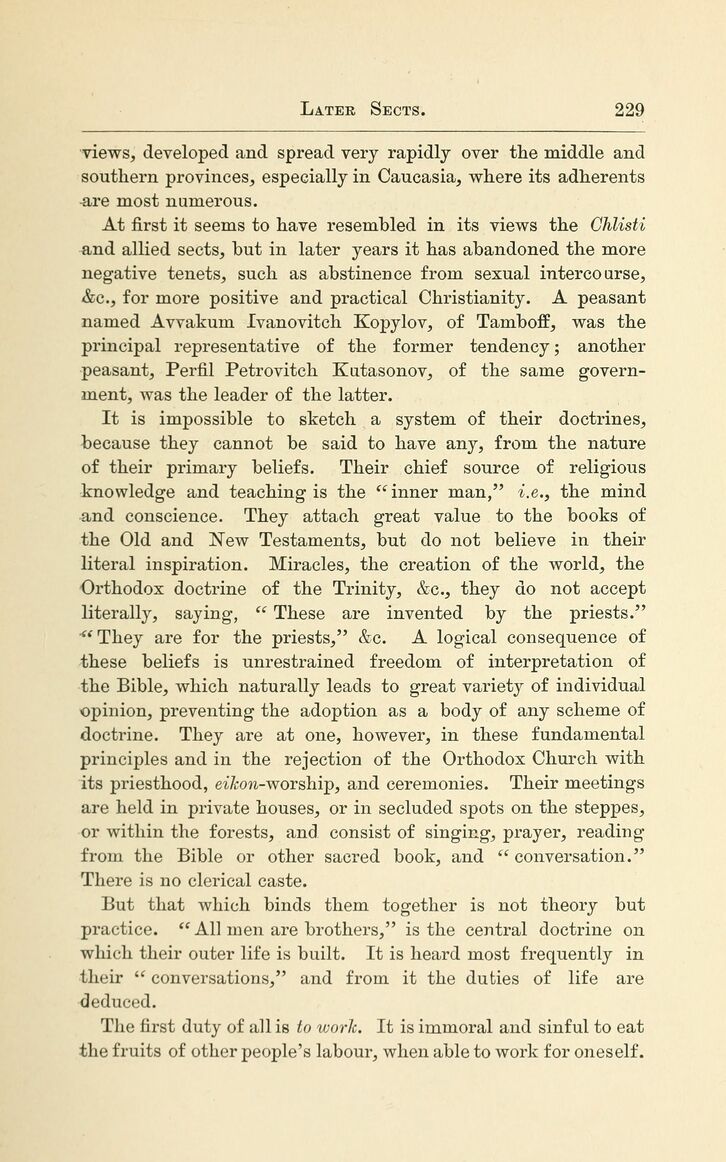
Full resolution (JPEG) - On this page / på denna sida - XV. Later Sects

<< prev. page << föreg. sida << >> nästa sida >> next page >>
Below is the raw OCR text
from the above scanned image.
Do you see an error? Proofread the page now!
Här nedan syns maskintolkade texten från faksimilbilden ovan.
Ser du något fel? Korrekturläs sidan nu!
This page has been proofread at least once.
(diff)
(history)
Denna sida har korrekturlästs minst en gång.
(skillnad)
(historik)
views, developed and spread very rapidly over the middle and
southern provinces, especially in Caucasia, where its adherents
are most numerous.
At first it seems to have resembled in its views the Chlisti
and allied sects, but in later years it has abandoned the more
negative tenets, such as abstinence from sexual intercourse,
&c., for more positive and practical Christianity. A peasant
named Avvakum Ivanovitch Kopylov, of Tamboff, was the
principal representative of the former tendency; another
peasant, Perfil Petrovitch Kutasonov, of the same
government, was the leader of the latter.
It is impossible to sketch a system of their doctrines,
because they cannot be said to have any, from the nature
of their primary beliefs. Their chief source of religious
knowledge and teaching is the “inner man,” i.e., the mind
and conscience. They attach great value to the books of
the Old and New Testaments, but do not believe in their
literal inspiration. Miracles, the creation of the world, the
Orthodox doctrine of the Trinity, &c., they do not accept
literally, saying, “These are invented by the priests.”
“They are for the priests,” &c. A logical consequence of
these beliefs is unrestrained freedom of interpretation of
the Bible, which naturally leads to great variety of individual
opinion, preventing the adoption as a body of any scheme of
doctrine. They are at one, however, in these fundamental
principles and in the rejection of the Orthodox Church with
its priesthood, eikon-worship, and ceremonies. Their meetings
are held in private houses, or in secluded spots on the steppes,
or within the forests, and consist of singing, prayer, reading
from the Bible or other sacred book, and “conversation.”
There is no clerical caste.
But that which binds them together is not theory but
practice. “All men are brothers,” is the central doctrine on
which their outer life is built. It is heard most frequently in
their “conversations,” and from it the duties of life are
deduced.
The first duty of all is to work. It is immoral and sinful to eat
the fruits of other people’s labour, when able to work for oneself.
<< prev. page << föreg. sida << >> nästa sida >> next page >>